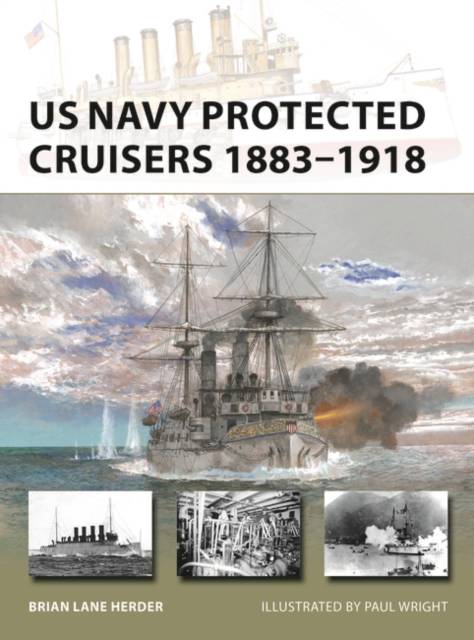
- Retrait gratuit dans votre magasin Club
- 7.000.000 titres dans notre catalogue
- Payer en toute sécurité
- Toujours un magasin près de chez vous
- Retrait gratuit dans votre magasin Club
- 7.000.0000 titres dans notre catalogue
- Payer en toute sécurité
- Toujours un magasin près de chez vous
Description
Explores the history of the US Navy's 11 new steel warships, built during the late 19th century to advance American naval supremacy.
After the American Civil War, the powerful US Navy was allowed to decay into utter decrepitude, and was becoming a security liability. In 1883, Congress approved four new steel-constructed vessels called the "ABCD" ships. The three protected cruisers Atlanta, Boston, and Chicago were the first steel warships built for the US Navy, whose 1880s-1890s technological and cultural transformation was so total it is now remembered as the "New Navy". This small fleet was joined by a succession of new and distinctive protected cruisers, culminating in the famous and powerful Olympia. These 11 protected cruisers formed the backbone of the early US steel navy, and were in the frontline of the US victory in the 1898 Spanish-American War. It was these warships that fought and won the decisive Battle of Manila Bay. These cruisers also served faithfully as escorts and auxiliaries in World War I before the last were retired in the 1920s. Written by experienced US naval researcher Brian Lane Herder, and including rare photographs, this book explores the development, qualities, and service of these important warships, and highlights the almost-forgotten Columbia-class, designed as high-speed commerce raiders, and to mimic specific passenger liners. All 11 protected cruisers are depicted in meticulously researched color illustrations with one depicting the Olympia deploying her full sail rig.Spécifications
Parties prenantes
- Auteur(s) :
- Editeur:
Contenu
- Nombre de pages :
- 48
- Langue:
- Anglais
- Collection :
- Tome:
- n° 320
Caractéristiques
- EAN:
- 9781472857033
- Date de parution :
- 25-07-23
- Format:
- Livre broché
- Format numérique:
- Trade paperback (VS)
- Dimensions :
- 180 mm x 242 mm
- Poids :
- 181 g

Les avis
Nous publions uniquement les avis qui respectent les conditions requises. Consultez nos conditions pour les avis.






